
Giáo trình Thuật ngữ chuyên ngành Dầu và Khí 8
UNIT 2
REFINING OPERATIONS
Petroleum refining operations can be separated into five basic areas:
1. Fractionation (distillation) is the separation of crude oil in atmospheric
and vacuum distillation towers into different "fractions" or "cuts."
2. Conversion processes change the size and/or structure of hydrocarbon
molecules. These processes include:
− Decomposition by thermal and catalytic cracking;
− Unification through alkylation and polymerization;
− Alteration with isomerization and catalytic reforming.
3. Treatment processes may involve chemical or physical separation such
as absorption or precipitation, including desalting, drying,
hydrodesulfurizing, solvent refining, sweetening, solvent extraction,…
4. Blending is the process of mixing and combining hydrocarbon fractions,
additives and other components to produce finished products with specific
performance properties.
5. Other Refining Operations include: process-water treatment and cooling;
storage; product movement; hydrogen production; sulfur recovery, …
DEFINITIONS
ALKYLATION A process using sulfuric or fluoric acid as a catalyst to
combine olefins (usually butylene) and isobutane to produce a high-octane
product known as alkylate.
DESALTING Removal of mineral salts (most chlorides, e.g., magnesium
chloride and sodium chloride) from crude oil.
HYDRODESULFURIZATION A catalytic process in which the principal
purpose is to remove sulfur from petroleum fractions in the presence of
hydrogen.
QUESTIONS
1. How many basic areas can the petroleum refining operations be
separated into?
2. What is the purpose of distillation process?
3. How many processes do the conversion processes include?
4. What workshops that belong to decomposition process?
5. What workshops that belong to unification process?

Giáo trình Thuật ngữ chuyên ngành Dầu và Khí 9
6. What workshops that belong to alteration process?
7. What is the purpose of alkylation process?
8. What is the purpose of desalting process?
9. What is the purpose of hydrodesulfurization process?
VOCABULARY
absorption / әb's:p∫n/ : hấp thụ
additive / 'æditiv/ : chất phụ gia
alteration / ,:ltә'rei∫n/ : sự biến đổi
area / 'eәriә/ : khu vực, diện tích
conversion / kәn'vә:∫n/ : sự chuyển hóa
decomposition / ,di:kmpә'zi∫n/ : sự phân huỷ
extraction / iks'træk∫n/ : sự chiết tách
fraction / 'fræk∫n/ : phân đoạn, phân số
include / in'klu:d/ : bao gồm, gồm có
involve / in'vlv/ : gồm
molecule / 'mlikju:l/ : phân tử
movement / 'mu:vmәnt/ : sự di chuyển, vận chuyển
operation / ,pә'rei∫n/ :Sự hoạt động, vận hành
precipitation / pri,sipi'tei∫n/ : sự lắng, kết tủa
recovery / ri'kvәri/ : sự thu hồi
refine / [ri'fain/ : lọc
size / saiz/ : kích cở, kích thước
solvent / 'slvәnt/ : dung môi
storage / 'st:ridʒ/ : sự tồn chứa
structure / 'strkt∫ә/ : cấu trúc
sweetening / 'swi:tniη/ : sự mềm hóa
thermal / 'θә:ml/ : thuộc về nhiệt, nhiệt
treatment / 'tri:tmәnt/ : sự xử lý
unification / ,ju:nifi'kei∫n/ : sự hợp nhất

Giáo trình Thuật ngữ chuyên ngành Dầu và Khí 10
GRAMMAR FOCUS
PAST SIMPLE AND PRESENT PERFECT
A Present perfect describe an action in the past but this action
always last until now
Example 1:
- Tom is looking for his key. He can’t find it.
- He has lost his key. (present perfect)
Few minutes later:
- Now Tom has found his key. He has it now.
- Has he lost his key? (present perfect)
- No, he hasn’t. He has found it.
- Did he lose his key? (past simple).
- Yes, he did.
- He lost his key (past simple) but now he has found it (present perfect).
Example 2:
- Jack grew a beard but now he has shaved it off. (= he doesn't have a
beard now)
- They went out after lunch and they’ve just come back. (= they come
back now).
B Past simple describe an action in the past and it doesn’t last until
now
- The Chinese invented printing. (not "have invented")
- How many plays did Shakespeare write? (not "has Shakespeare
written")
- Beethoven was a great composer. (not 'has been')
Compare:
- Shakespeare wrote many plays.
- My sister is a writer. She has written many books. (she still writes books)
- He was ill last week (He’s all right now)
- He has been ill since last week = He has been ill for a week (He’s ill until
now)
C Present perfect describe an action has just happened and the
actions following will be used in past simple:

Giáo trình Thuật ngữ chuyên ngành Dầu và Khí 11
A: Ow! I’ve burnt myself.
B: How did you do that? (not "have you done").
A: I picked up a hot dish. (not "have picked")
A: Look! Somebody has splilt milk on the carpet.
B: Well, it wasn’t me. I didn’t do it. (not "hasn't been...haven't done")
A: I wonder who it was then. (not "Who it has been")

Giáo trình Thuật ngữ chuyên ngành Dầu và Khí 12


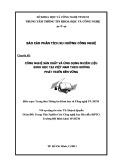


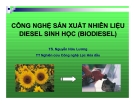

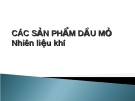



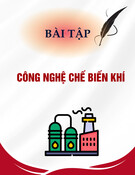
![Đề cương môn Công nghệ chế biến khí [năm học]](https://cdn.tailieu.vn/images/document/thumbnail/2025/20250910/thangkho12072002@gmail.com/135x160/88581757470791.jpg)

![Đề cương Công nghệ Polyme và Compozit [mới nhất]](https://cdn.tailieu.vn/images/document/thumbnail/2025/20250901/hungngao2711/135x160/24771756869342.jpg)
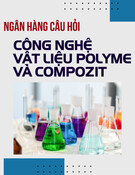



![Ứng dụng kỹ thuật trao đổi ion trong điện phân: Bài tiểu luận [chuẩn nhất]](https://cdn.tailieu.vn/images/document/thumbnail/2025/20250829/sonphamxuan1808/135x160/97341756442892.jpg)
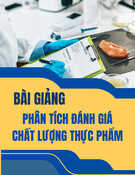
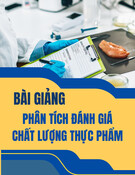
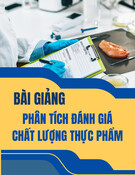
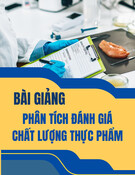
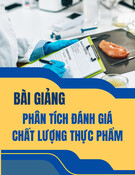
![Bài giảng Kỹ thuật thực phẩm 2 [mới nhất]](https://cdn.tailieu.vn/images/document/thumbnail/2025/20250811/vijiraiya/135x160/10491754899590.jpg)
